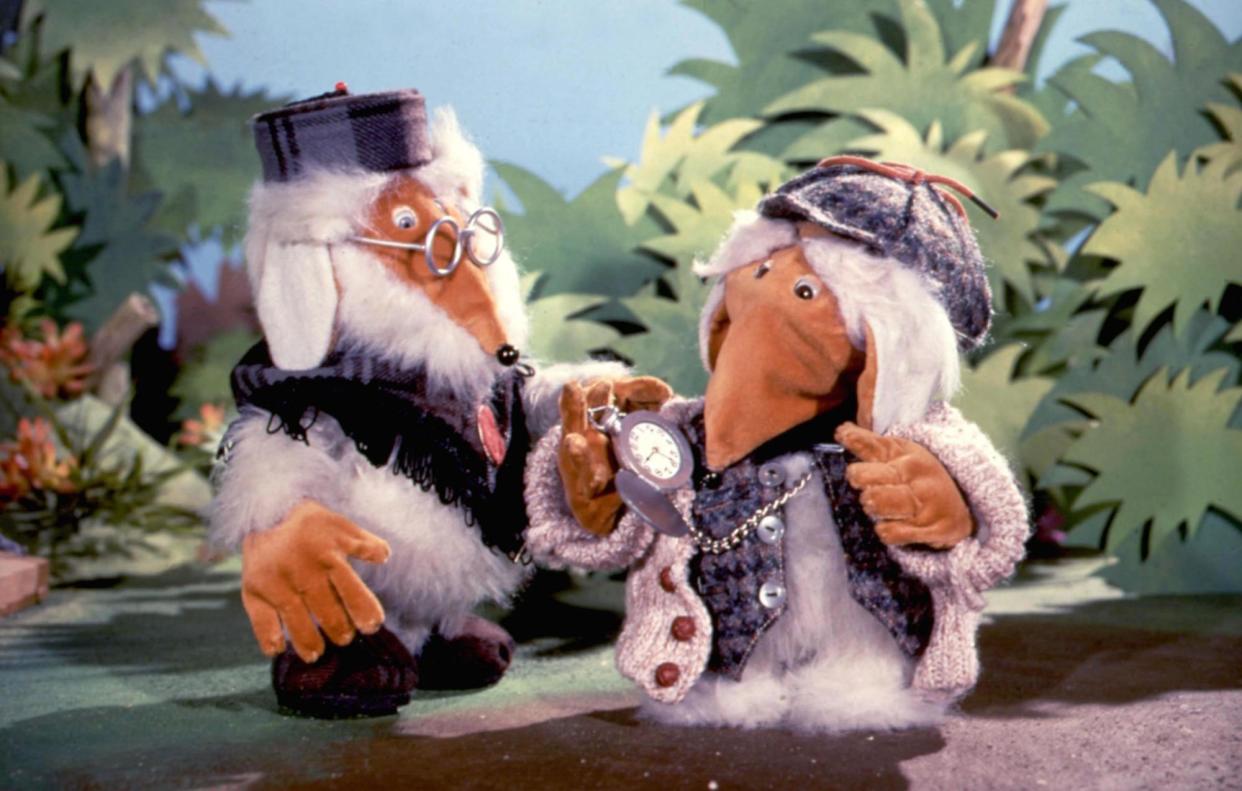Has anybody seen the Wombles? The hunt is on for TV’s favourite puppets and props

Are you sitting comfortably? Bagpuss is, but Mother Clanger is not. Dougal may be – nobody is quite sure. And the Wombles – well, they haven’t been seen for years.
Not all of these icons of childhood have been given the care they deserve and now some of the leading lights of children’s TV and animation have called for them to be given their own home.
Although some of the puppets, costumes, props and models from children’s TV shows are scattered around museums in the UK and abroad, others languish in storage units or are packed away in lofts or barns. Some have even been destroyed, apparently without much thought.
The good news for nostalgics is that Bagpuss is celebrating his 50th anniversary alongside some of the Clangers at the Beaney museum in Canterbury. The V&A has Ollie Beak. Bradford’s National Science and Media Museum has Bill and Ben the Flower Pot Men, the Fimbles, some Woodentops, a few Bob the Builder vehicles and Gordon the Gopher. The original Thomas the Tank Engine model is in the Hara Model Railway museum in Japan.
And fear not, Paddington fans – the bear is the star of Gyles Brandreth’s teddy bear collection, on display at Newby Hall in North Yorkshire, alongside Pudsey, a Sooty (no Sweep), Nookie Bear and even the original Fozzie Bear, a gift from Muppet impresario Jim Henson in the 80s.
“I occasionally say at my shows ‘Andy Pandy’s coming to play’ and the audience immediately responds with the next line,” Brandreth said. “They’ve not had this in their heads for 70 years but it comes straight back to them. Any museum of childhood should include these wonderful things – the props, the puppets, the stop-frame animation stuff.
“The point is that all these things are genuinely important, not only because they are popular, but because they form who we are as grown-ups.”
Although kids’ TV in 2024 is struggling to grab children’s attention, and the Children’s Media Foundation launched a campaign last week to help save the genre, the UK has a long and rich history of puppet- and model-based stop-motion animation.
The genesis was the Little Angel Theatre in Islington, opened in 1961 by John Wright.
He trained and worked with animators including Ivor Wood, Peter Firmin and Oliver Postgate, who were responsible for many of the best-known shows.
“It was a place where puppeteers discovered things – it was so unusual to have a building for puppetry at that time,” said Ronnie Le Drew, who was Zippy on Rainbow – ITV’s answer to Sesame Street – and later worked on Labyrinth and several Muppet films.
Ivor Wood worked at Filmfair and produced and animated The Magic Roundabout, The Herbs, The Wombles and Paddington, while Postgate and Firmin created Bagpuss, Pingwings, Ivor the Engine and the Clangers, filmed in a barn in Kent alongside several families of starlings.
“When my dad was filming the Clangers, he’d have to mop up the starling poo on the planet in the morning,” said Daniel Postgate. “There was another scene with the Soup Dragon holding a chocolate coin. When he returned to it in the morning, mice had eaten the coin and half the hand.”
Firmin gave puppets away to Daniel and the other children, and many have simply disappeared or been eaten by wildlife. “We don’t know where the Baby Soup Dragon is,” he said.
“Someone stole Mother Clanger. Emily [Firmin] sometimes digs over the garden and finds bits of the Clangers’ planet.”
Wood’s creations have fared less well. After FilmFair, he set up Woodland Animations to make Postman Pat, Gran, Bertha and Charlie Chalk. The original Postman Pat models survive, but the other Woodland models do not, according to Josiane Wood, his widow .
“It’s a disaster because when we sold Woodland Animations I don’t think they realised how precious the puppets were,” she said. “Every evening they used to go back in a cupboard, wrapped in tissue paper. Then I asked for something back and they said they had destroyed everything.”
Some of Wood’s other creations are now owned by WildBrain, which also owns shows including Teletubbies and In the Night Garden. Shaun Smith, Wildbrain’s communications director, said that they had received “a range of original production materials from these series, which are now housed in safe and secure production storage in London, as is common practice for shows of historical significance.” That included various costumes, puppets and props, he added, as well as the other original Paddington bear.
Tom Sanders, a modern animator and Ivor Wood fan has spent some time trying to track down Wood’s work and said the only Womble confirmed to survive is Great Uncle Bulgaria.
“The Herbs were found in a box in Ivor’s accountant’s office,” he said. “We’ve got all these priceless things that could be housed somewhere. Someone just needs to do it.”
Britt Allcroft, who created the Thomas and Friends series, agrees. “I would love that to happen,” she said.
Re-enter Brandreth. “I may regret this,” he told the Observer. “But rest assured. We are ready – we may be ready to build an annexe to Brandreth House in Newby Hall.”


